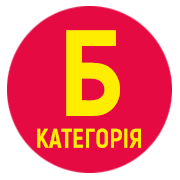SPECIFICITY OF THE CONTENT OF LESSONS IN THE SYSTEM OF ADAPTIVE PHYSICAL CULTURE IN INSTITUTIONS OF GENERAL SECONDARY EDUCATION
DOI:
https://doi.org/10.32782/olimpspu/2024.1.7Keywords:
adaptive physical culture, nosiology, motor activity, inclusive physical education.Abstract
The purpose of the article is to analyze and substantiate the direction of the content of the lessons in the system of adaptive physical culture in PPE and their specificity depending on the deviation in the state of health. The essence and importance of adaptive physical culture in schools is to provide opportunities for physical development and active participation in physical activities of all students, regardless of their individual characteristics, abilities and physical limitations. It helps develop healthy lifestyle skills in children, supports their physical and mental health, promotes social integration and the development of self-esteem. Adaptive physical culture in schools is an important component of the general educational process, contributing to the harmonious development of each child. Methods. analysis of scientific and methodological literature, psychological and pedagogical observation. Adaptive physical culture in educational institutions is aimed at creating an inclusive and flexible environment for the physical education of students with different characteristics. Its essence consists in the individualization of approaches to learning, taking into account the needs and capabilities of each student. The importance of adaptive physical culture in schools includes creating a favorable environment for the participation of all students, regardless of their physical, social or emotional characteristics; allows each student to develop their physical skills and abilities at a level that corresponds to their individual capabilities; encourages cooperation and interaction between students of different physical abilities, which contributes to the formation of a positive social environment. In addition, adaptive physical culture contributes to improving the physical and mental health of students, providing them with the necessary level of activity and motor activity. Adaptive physical culture in schools recognizes and takes into account the diversity of students, contributing to their harmonious development and active inclusion in physical activity. The study assumed that the use of inclusive education in Ukraine creates prerequisites for the introduction of equally equal conditions in the educational process for all children who will be participants in the educational process in a single educational space in accordance with their characteristics, needs and capabilities, and therefore during lessons physical culture.
References
Діти з порушенням зору в умовах інклюзивної освіти : навчально-методичний посібник / Н.М. Алєєва та ін. Київ : Кафедра, 2016. 212 с.
Вержиховська О.М., Рудзевич І.Л. Теорія і методика виховання дітей в спеціальній школі : навчально-методичний посібник. 2-ге вид., перероб. і доп. Кам’янець-Подільський : Кам’янець-Подільський національний університет імені Івана Огієнка, 2016. 292 с.
Конвенція ООН про права осіб з інвалідністю / Нац. Асамблея людей з інвалідністю України. Київ, 2017. 64 с.
Миронова С.П. Педагогіка інклюзивної освіти : навчально-методичний посібник / Кам’янець-Подільський національний університет імені Івана Огієнка. Кам’янець-Подільський, 2016. 164 с.
Трояновська М.М. Адаптивна фізична культура: навчально-методичний посібник для студентів факультетів фізичного виховання / Національний університет «Чернігівський колегіум» імені Т.Г. Шевченка. Чернігів, 2018. 104 с.







